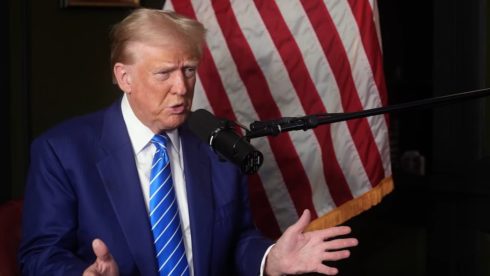In a notable legal decision, Judge Juan Merchan has delayed the sentencing of former President Donald Trump in his Manhattan hush money case until November 26, 2024, weeks after the U.S. presidential election. The trial, which resulted in Donald Trump’s conviction on 34 felony counts of falsifying business records, represents the first instance of a sitting or former president being convicted of a crime. The charges stemmed from a scheme to conceal payments made to adult-film star Stormy Daniels during Trump’s 2016 campaign.
Judge Merchan cited “the unique time frame” as the primary reason for the delay. He expressed concern that sentencing proceedings could be perceived as politically motivated given Trump’s status as the leading Republican candidate for the 2024 election. His decision was aimed at preserving the court’s impartiality, stating that the hearing should focus on the jury’s verdict without being overshadowed by the approaching election.
Legal Maneuvers to Delay Sentencing
Donald Trump’s legal team has employed several strategies to delay the sentencing, which was originally scheduled for September 18. One significant delay came after a U.S. Supreme Court ruling in July, which granted former presidents some immunity from criminal prosecution for “official acts.” Trump’s lawyers argued that the ruling could impact the sentencing, prompting Judge Merchan to allow additional time for both parties to prepare their arguments.
A final decision on the implications of the Supreme Court ruling will be made on November 12, 2024. However, the judge dismissed many of Trump’s other legal arguments as “unsubstantiated grievances.” Judge Merchan emphasized that the court would not treat Trump differently from any other defendant, underscoring that sentencing delays for personal circumstances or scheduling conflicts are common in other cases as well.
Prosecutors’ Case Against Donald Trump
Prosecutors in the case accused Donald Trump of approving a payment to Stormy Daniels to keep her silent about an alleged affair during his 2016 presidential campaign. The payment was made through Trump’s former lawyer, Michael Cohen, and was recorded as legal expenses in the Trump Organization’s records. Prosecutors argued that this misrepresentation violated campaign finance laws by hiding the true nature of the payment from the public.
The felony counts of falsifying business records carry a potential prison sentence of up to four years. However, Judge Merchan has the discretion to impose a lighter sentence, including probation or a fine. Trump, who has consistently denied wrongdoing, has dismissed the case as a political attack, calling it a “witch hunt” and claiming the charges should be dropped. On his social media platform Truth Social, Trump reiterated his innocence, stating that the case should be terminated as he prepares for the upcoming election.
Political Implications and Potential Pardons
The delay in sentencing means that Donald Trump will not face legal consequences before voters head to the polls in November. If Trump is re-elected, he would have the power to pardon himself of any federal crimes he is convicted of. However, the Manhattan case, along with other charges Trump faces, such as the election interference case in Georgia, are state-level charges. This means that even if Trump returns to the White House, he would not be able to pardon himself from convictions in state courts.
A spokesperson for Manhattan District Attorney Alvin Bragg, whose office brought the charges against Trump, stated that prosecutors are ready for sentencing on the new date set by the court. The outcome of this case could have significant legal and political consequences, as Trump continues to maintain his innocence while navigating multiple legal battles ahead of the 2024 election.
Sentencing Outlook and Political Reactions
Donald Trump could face up to four years in prison if sentenced, though Judge Merchan has the discretion to impose a lesser penalty, such as a fine or probation. The charges stem from payments made during Trump’s 2016 campaign to silence adult film star Stormy Daniels regarding an alleged affair. Prosecutors argued that Trump approved a scheme to conceal the payment by disguising it as legal expenses, violating election laws.
In response to the ruling, Donald Trump has consistently denied any wrongdoing, labeling the case a “witch hunt.” He took to his social media platform, Truth Social, to reiterate his innocence, dismissing the case as a politically motivated attack. “This case should be rightfully terminated, as we prepare for the Most Important Election in the History of our Country,” Donald Trump wrote. Meanwhile, Manhattan District Attorney Alvin Bragg, whose office prosecuted the case, expressed readiness for the new sentencing date.
If re-elected, Donald Trump would have the power to pardon himself for any federal crimes. However, the New York case, along with the election interference case in Georgia, are state-level charges, meaning a presidential pardon would not apply. As the legal and political battles intertwine, Trump’s supporters and critics are left waiting for the next stage of this historic case.














